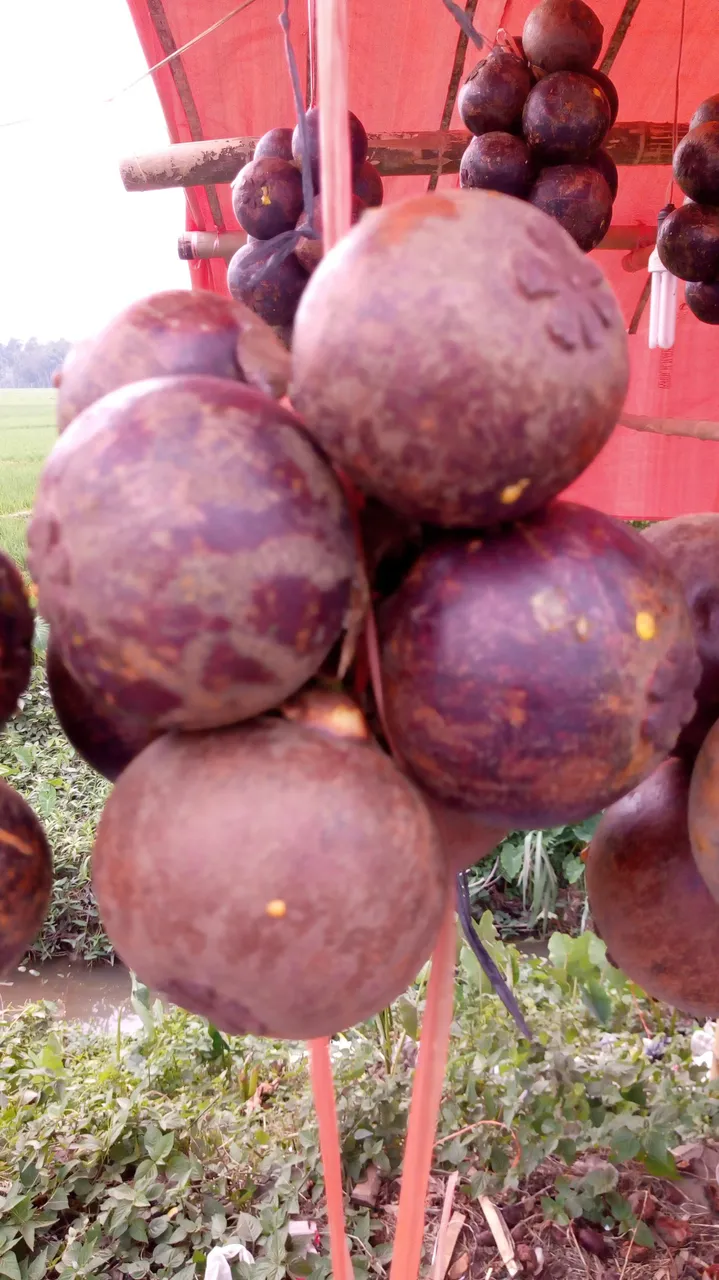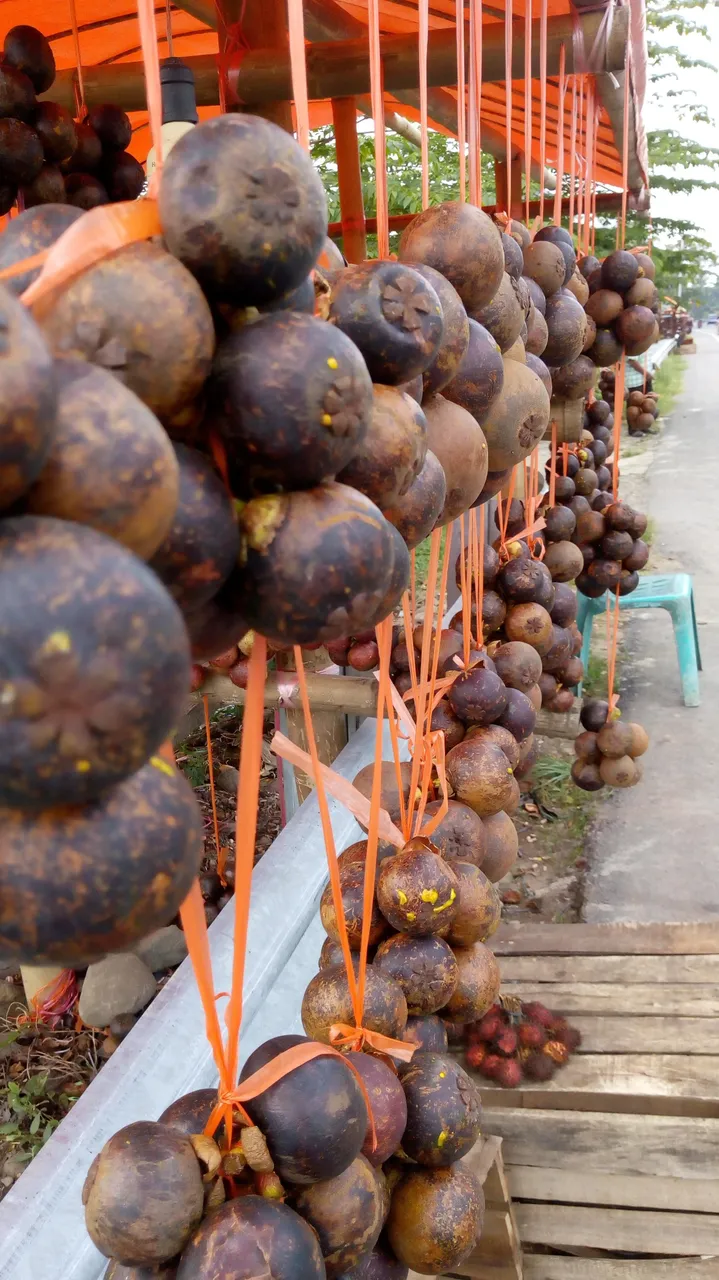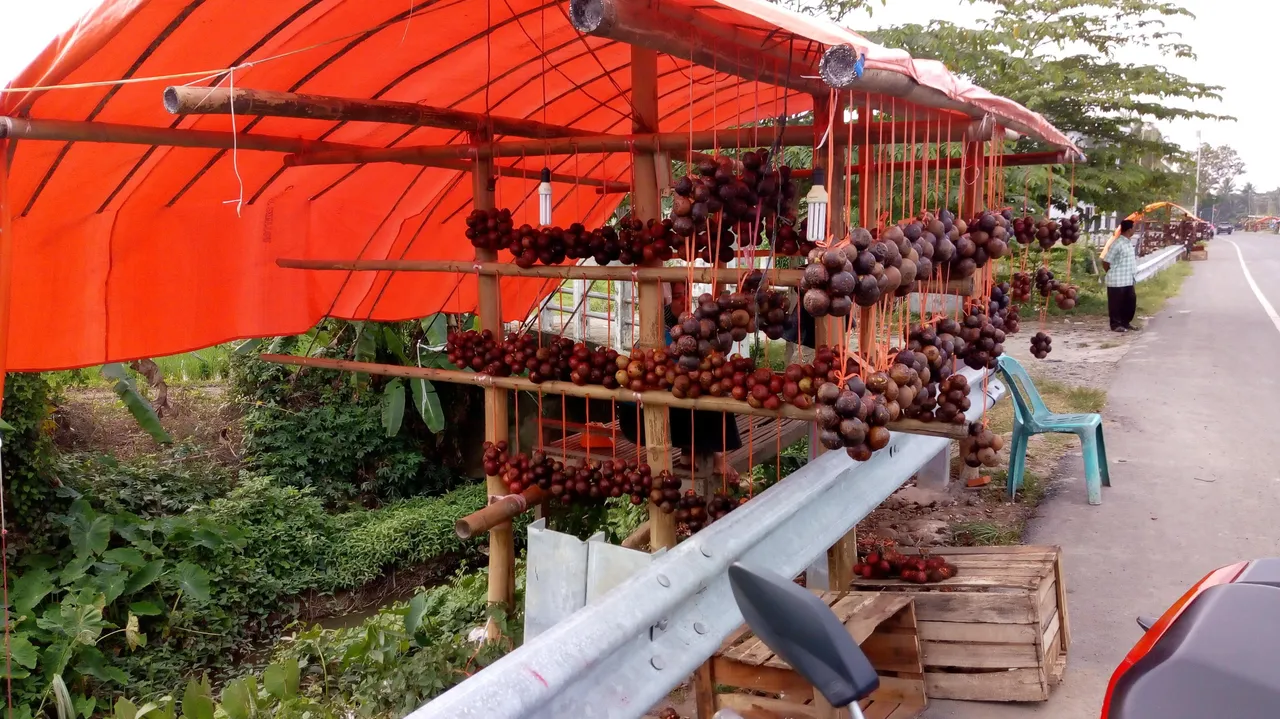
Dear steem today I would like to share about Mangosteen fruit consists of three main parts: hard purple skin, edible white meat, and seeds wrapped in meat. The seeds taste very bitter, while the meat has a delicate aroma and texture with a sweet sour taste. The outer shell or the skin of the mangosteen (pericarp) is rather hard, but can be opened easily.

While if the mangosteen seeds taste bitter and can not be eaten, but the skin of the hard mangosteen is now widely sold as an extraction product that is believed to cure various cancers. This is according to research, that the juice extract of mangosteen peel contains xanthone compounds that are believed to be a nutritious antioxidant. (for the skin of mangosteen, we will discuss next article)
Nutritional content of Mangosteen fruit:
Mangosteen fruit is also beneficial because it has a fairly high nutritional value. In addition to being a delicious fruit, mangosteen is a rich source of fiber and carbohydrates. The high content present in this tropical fruit is vitamin A, vitamin C, iron, calcium and potassium. This fruit is also a source of vitamin B complex is quite high, such as thiamin, niacin and folic acid. This vitamin acts as a cofactor that helps the body to metabolize carbohydrates, proteins, and fats. One cup of canned mangosteen fruit provides 143 calories. Mangosteen fruit is also known to have the most sources of xanthones (especially the skin), than xanthones from other sources.
Benefits and Benefits of Mangosteen fruit for health:
Mangosteen fruit has actually long been used for traditional medicine in various Asian countries. In history even said, this exotic fruit has been brought along the way around the world so that it can be tasted by Queen Victoria. The benefits of the mangosteen fruit for health have been known since the 18th century, and have proven to be not just a myth. Mangosteen fruit is a storehouse of essential nutrients the body needs, so it has various benefits of the following benefits:
Antioxidants:
Scientific research has proven that Mangosteen contains natural polyphenolic compounds known as xanthones. There are two types of xanthones contained in this fruit - alpha and gamma. Xanthone and its derivatives have been shown to have several properties, such as anti-inflammatory, as well as effective drugs against various cardiovascular diseases. These antioxidants have the basic properties to regenerate cells that have been damaged by free radicals, so that the effect can slow aging, counteracting degenerative diseases as well as physical and mental damage.Low Calories: Diets lose weight
Mangosteen fruit is very low in calories (63 calories per 100 g), and does not contain saturated fat or cholesterol. And incredibly, mangosteen is also rich in fiber (100 g provides about 13% of the recommended daily requirement value). So this fruit is also very important for individuals who care about excess weight.Vitamin C :
Mangosteen is rich in vitamin C, contains about 12% of the total daily requirement recommended per 100g of fruit. Being a strong water soluble antioxidant. Vitamin C is efficacious for boosting immunity, so the virus that causes flu and fever will get out of our body. Vitamin C is also known as an antioxidant to fight harmful free radicals. Therefore, consuming fruits rich in vitamin C is very important to develop resistance to disease.
Vitamin C in mangosteen fruit is also effective against cataracts, that is by increasing the amount of blood flow to the eye .1000mg dose of Vitamin C per day is said to be effective to limit cataracts and improve vision.
- Folate
Folate is also found in the mangosteen fruit plays an important role in the formation of new cells in the body and development of the fetus. So that the mangosteen fruit is also very well consumed during pregnancy.
